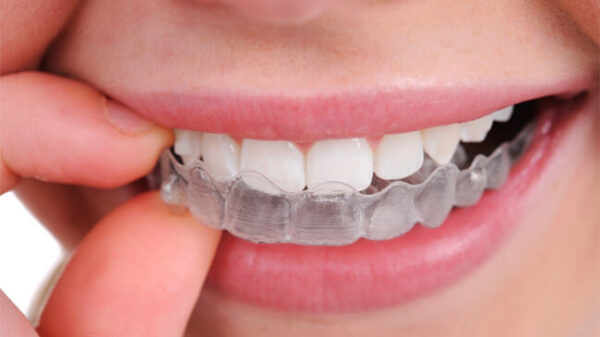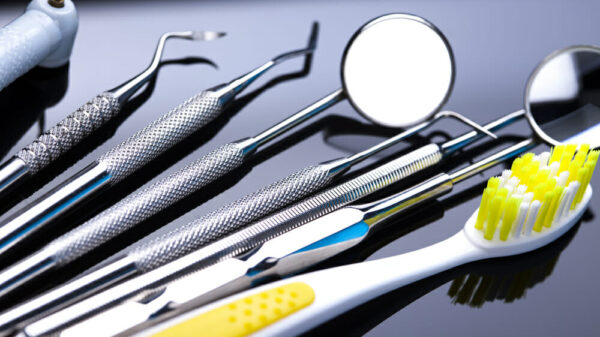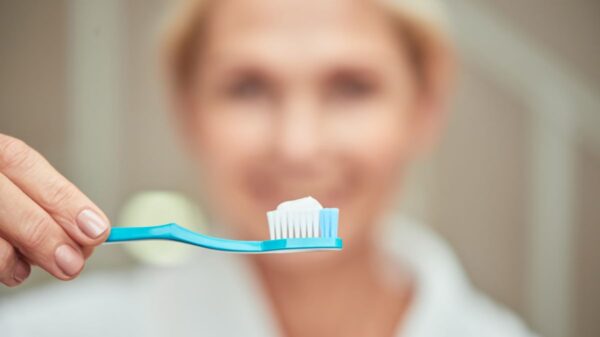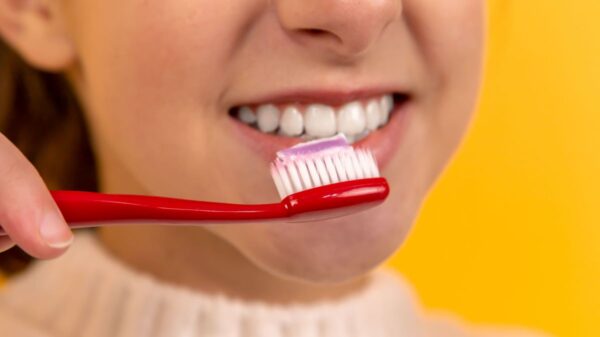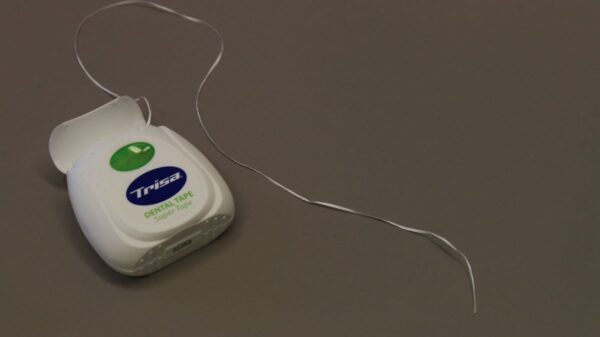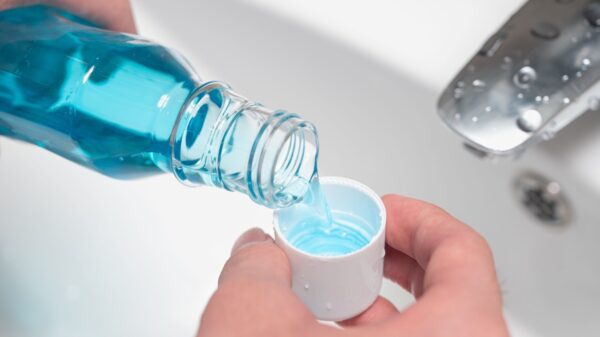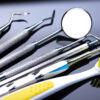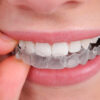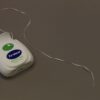What Causes Sensitive Tooth Pain?
Sensitive tooth pain can be a very unpleasant experience for those that have it. In many cases, people do not know what is causing this pain and where the source is coming from. It’s important to note that sensitive teeth are usually going to be classified as being mild or occasionally sensitive. People with severe pain should immediately see a dentist as they may have a much more serious condition at hand.
So, what causes sensitive tooth pain? There are several potential causes of sensitive tooth pan including penetrating dentin hypersensitivity, tooth decay, poor oral hygiene, cavities, or gum disease. It is important to reach out to a dentist if you are experiencing sensitive tooth pain to determine the underlying cause of your discomfort.
Keep reading to learn more about what is causes tooth pain or sensitivity!

Tooth Structure
Two different structures in your mouth can lead you to experience pain: the enamel and the dentin. The enamel of a tooth needs to be strong but also flexible enough for us to eat food without breaking our teeth off.
On average, about 1/8th of an inch of the enamel is outside the gum line. This means that most people are used to having some of their teeth exposed, this is fine for most people who do not have extremely sensitive teeth.
The dentin of your teeth is what makes up about 2/3rds of the total structure of a human tooth. Dentin needs to be very close in structure and mineralization to bone tissue to work with our natural biting forces when chewing food. As these two structures need to be so close in mineralization, it’s often the case where increased dental sensitivity occurs in response to changes in your saliva pH.
Saliva can fluctuate in pH due to diet, illness, or even medications you might take daily, so it’s not always the case that dental sensitivity is due to a lack of brushing and flossing.
Top Causes of Sensitive Tooth Pain
There are several possible causes of sensitive tooth pain. Let’s take a closer look at what is causes your tooth sensitivity:
Penetrating Dentin Hypersensitivity
One possible cause is Penetrating Dentin Hypersensitivity or PDH. This is probably one of the most common causes of tooth pain. PDH occurs when there is a crack in your enamel and dentin barrier allowing saliva and fluid to enter into the deeper part of your tooth, making it extremely sensitive.
This often happens when we eat acidic foods like oranges or drink orange juice, lemonade, or even grapefruit. The pain typically occurs the second after you start to eat this type of food and can be so severe it’s impossible to use a toothbrush without experiencing major irritation.
PDH is also known as “tooth sensitivity” and although there are various reasons why people experience sensitivity in their teeth, PDH is the most common. This could be because we tend to brush our teeth incorrectly and don’t floss enough.
Either way, if you’re unable to brush your teeth because they’re too sensitive then you probably have some form of PDH. To find out for sure it’s best if you see a dentist who may perform an instrument known as a ” cotton roll test ” to see which teeth are experiencing the sensitivity.

Tooth Decay
Another possible reason for experiencing pain in your teeth is that there are noticeable differences between healthy teeth and those with various levels of decay. If you have a cavity, you might experience some level of pain when biting down on food. This is because cavities damage your tooth, so it becomes more sensitive as time passes by.
The same can be said about any area where one or multiple teeth have been extracted. These empty spaces will also become more sensitive over time, especially if you’re not careful with what types of foods you eat during the healing process. It’s important to note that this type of pain shouldn’t be confused with PDH because it occurs for a different reason.
Poor Oral Hygiene
When it comes down to it, the biggest cause of dental pain is probably because you’re not brushing enough. Brushing your teeth twice a day using fluoride toothpaste isn’t enough, you should be brushing after every meal or at least three times daily.
It’s also important to floss before going to bed and after each time you brush your teeth. If you don’t want to floss because of sensitive gums then consider getting an electronic toothbrush that has an oscillation speed of 300 movements per minute. These types of brushes help reduce gum irritation because they’re gentler than manual toothbrushes.
Lastly, if you can afford them then buy yourself some mouthwash containing them as this will strengthen the enamel on your teeth and make them more resistant to damage.
Tooth Pain or Gum Disease
Keep in mind that sensitivity, cavities, and other forms of tooth pain can also be an indication of gum disease. If you notice any swelling or irritation around the area where your teeth and gums meet then you might have this form of periodontal disease, so see a dentist as soon as possible for treatment.
One way to prevent gum disease is by brushing and flossing regularly and avoiding foods that can erode enamel such as soda, fruit juice, and even alcohol. Since the most common cause of sensitive teeth is because you’re not brushing enough, schedule an appointment with your dentist right now to eliminate the possibility of PDH.
They will most likely give you something to rinse with containing fluoride and tell you to start brushing more.
How Can You Restore Oral Heal?
It is important to note that restoring health to your natural teeth can take some time; in some cases up to 12 weeks or more depending on the severity of the damage. There are also many factors involved such as how long it has been since the tooth became sensitive, what caused the toothache, etc.

Professional Remedies for Tooth Sensitivity
There are several immediate things you can do at home after seeing your dentist, to help speed up recovery and relieve pain:
- Rinse your mouth with a solution of ½ teaspoon salt dissolved in 8 ounces warm water. The salt helps draw out the chemicals that irritate the nerve endings of the tooth, thus eliminating pain and sensitivity.
- Take ibuprofen or acetaminophen for temporary relief from pressure or discomfort. This may be necessary if you have sensitive teeth caused by high hormonal changes and/or stress. If the pain is too intense it would be wise to take care of that first before trying other remedies – icing the area of pain is a simple way to do that.
- Stop using your teeth as tools! This means no chewing on ice cubes or hard, crunchy foods like carrots and apples. Even though these may be “tasty” they are only worsening the condition by scratching up the tooth’s enamel, creating more exposed nerve endings for the chemicals to irritate.
- Use desensitizing toothpaste, which is available in most local pharmacies. The ingredients generally work by covering up problem areas with mineral-like compounds which prevent future damage from happening due to food or drink being in direct contact with sensitive parts of your teeth.
- If you are still in need of immediate relief, after trying the at-home remedies above, remember that your dentist can provide a temporary solution in the form of a temporary filling or by using a method called “rubber-banding”. This is done right in their office without any anesthesia required. This method involves placing an elastic rubber band around the tooth to reduce exposure of the nerve endings, providing several days of much-needed rest for the sensitive tooth until further treatment can be performed back in his/her office. Once this has been completed it’s extremely important to come back into the office so they can take care of relieving pain once and for all!
Home Remedies for Tooth Sensitivity
If you feel it’s necessary, to avoid having to come into the office because of your busy schedule, there are other methods you can use at home to relieve tooth sensitivity. These methods usually don’t provide relief for very long.
- The first thing is baking soda mixed with hydrogen peroxide (a 3-to-1 ratio). Heating it slightly will change the consistency so that you won’t have to floss it out later – be sure to wait until completely cool before attempting this though!
- You may also apply a mixture of salt and lemon rinds directly onto the gum tissue surrounding the tooth in question, however, this method will sting slightly due to the high acidity of lemon juice.
- Finally, if all else fails just take a cotton ball, dip it into some oil (olive or almond are best), and then apply it directly onto the affected tooth for about 10 minutes. Olive oil seems to work better than almonds in this case but you can experiment by trying both! To speed up recovery time you may want to place the cotton ball onto the sensitive area after eating or drinking anything acidic. This solution is usually more reliable when used with other remedies mentioned above. instead of on its own so use your best judgment while following these tips; not every remedy will work for every person!
Final Thoughts
Do not ignore what your teeth are telling you. Ignoring your teeth can be a problem. Make sure to take steps today to eliminate the pain and possible complications that can occur later. Hopefully, the steps in this article will put you back on the right path of greater care for your teeth.




